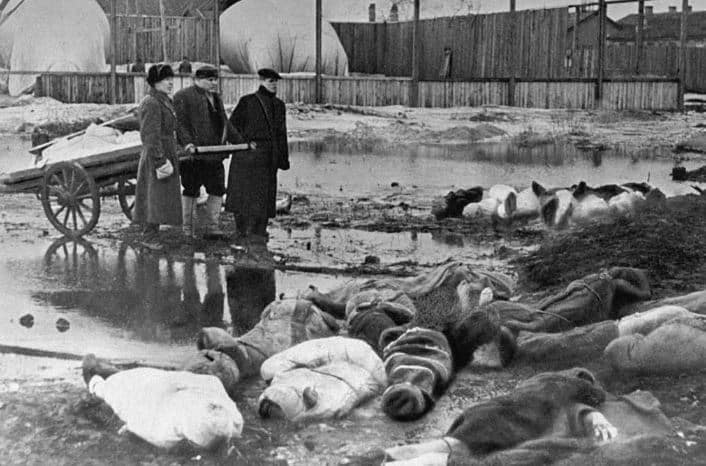I believe one of the reasons many Americans carry such negative feelings about the Russians is our collective failure to understand the price Russians paid to defeat Hitler. The sad truth is that most Americans have trouble identifying the warring parties in World War II and generally believe that terrible conflict was settled because of what America did.
The American people are good folk at heart. They genuinely want to help the less fortunate or the beleaguered. But, during the last 75 years, American politicians cynically have used this trait to convince the public to back foreign wars that killed hundreds of thousands of civilians. All of this bloodshed was done under the banner of promoting freedom and democracy. Yet, if you ask the folks in Vietnam, Laos, Cambodia, Panama, Afghanistan, Iraq, Somalia, the Balkans, Libya and Syria how they view the US “help”, they have what can charitably be called a “different perspective.”
I believe one of the reasons Americans have been bamboozled into supporting most of the US foreign adventures is a fundamental ignorance about US military casualties. Misconceptions about US losses in World War II are pervasive. If you ask the average American who knows something about the history of WW II, he or she likely believes that the United States paid dearly in blood to defeat Japan and to help bring an end to Nazi Germany. In fact, the vast majority of Americans believe that the Russians played only a minor role in crushing the Nazis.
Apart from lousy public education, Hollywood is the major culprit in perpetuating the myth of US prowess in World War II. Those movies that mention the Soviet role (and that is a small number) usually portray Stalin as desperate for the Allies to open a western front against the Germans.
So let me share with you some surprising facts. What were the five bloodiest campaign battles in World War II that cost the United States the most fatalities?
If your family lost a loved one in these battles, the total number of deaths is meaningless. The death of the person who was loved by parents, siblings and friends was incalculable. My intent in presenting these stark statistics is to help you appreciate why the Russians are so justifiably paranoid about foreign threats, especially those that embrace modern Nazis.
Here are the top five Russian campaigns. They only fought the Germans. But the price in blood is staggering:
Let me state the difference in another way. Total US killed in action in World War II in both the European, North African and Pacific Theaters totaled 472,000. The Russians lost more troops in four separate battles than the United States lost in the entire war.
The Russian people did not fight because Stalin had a gun pointed at their back. They rallied in a remarkable way to the Nazi invasion. Most military analysts at the time predicted the Soviet Union would collapse under the weight of the Nazi steamroller. The Russian people defied those expectations and rallied to defeat the best of the German armies.
The horrific death toll touched almost every family in Russia. That is why the Russians still remember and commemorate that sacrifice every May. It has nothing to do with communism. World War II scarred the Russians to the bone. That is the primary reason that Vladimir Putin enjoys widespread public support in taking on the threat from Ukraine. Ukraine has been a de facto NATO ally since 2014, when the United States and the United Kingdom helped orchestrate the coup that ousted the democratically elected president.
The United States and NATO are grossly mistaken if they believe that flexing military muscle by deploying troops on Russia’s borders will cow the Russian people. This perceived threat goes beyond Putin. It is something most Russians see and fear. My hope is that once the American people appreciate the legitimate paranoia of the Russians, they will reject calls to treat Russia as an intractable enemy.
The history of the 77 years that have passed since the end of the war is not replete with incidents of Russia launching repeated military operations in other countries. It is the United States that holds that tarnished crown. President John Quincy Adams, speaking about the Declaration of Independence, offered this wise counsel (Adams was the first US Ambassador to Russia) :
Wherever the standard of freedom and independence has been or shall be unfurled, there will her heart, her benedictions and her prayers be. But she goes not abroad in search of monsters to destroy. She is the well-wisher to the freedom and independence of all. She is the champion and vindicator only of her own. She will recommend the general cause, by the countenance of her voice, and the benignant sympathy of her example.
I believe the American Republic would be well served to take Adam’s words to heart and construct a new foreign policy that is not based on sending our troops abroad to die in meaningless wars. The good heart that powers America still beats. But it is under assault at home. Russia does not threaten our Republic. Our peril is at home.
Reprinted with permission from Sonar21.com.



